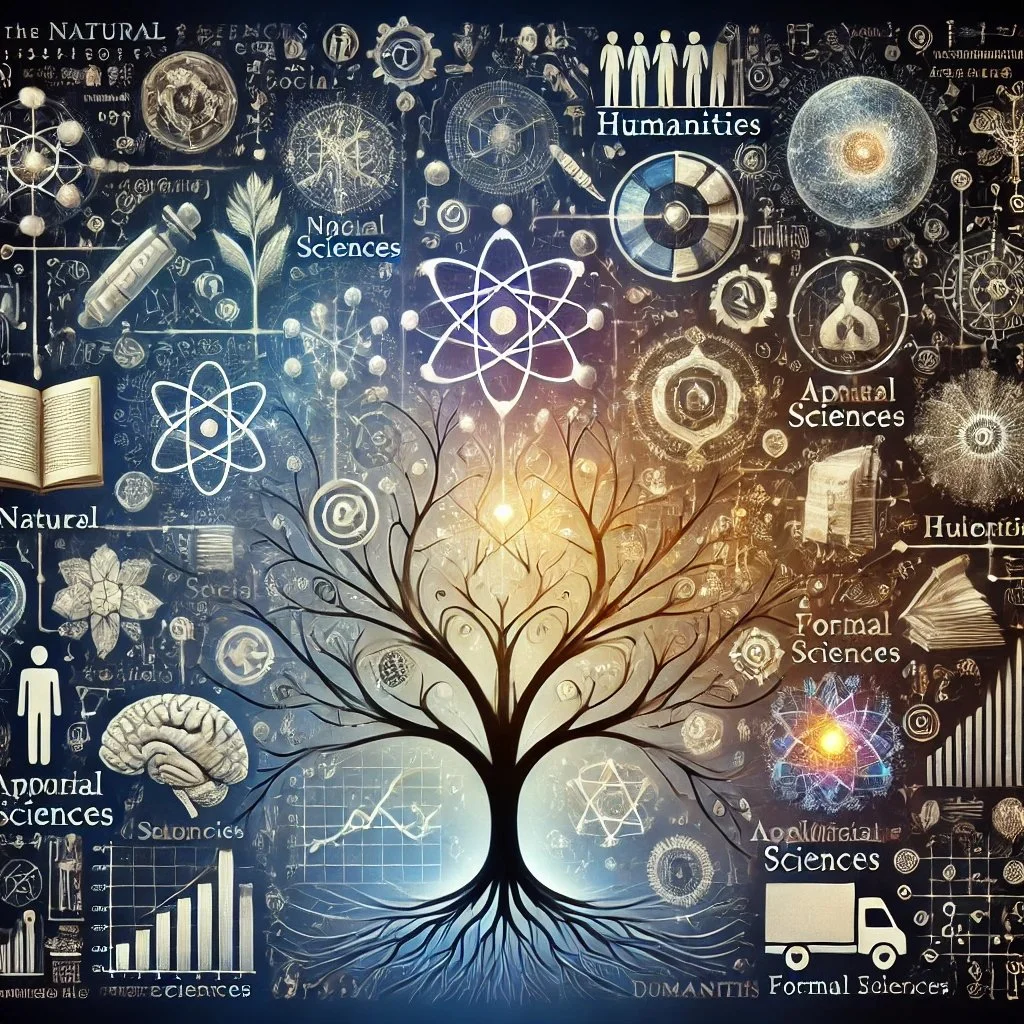What - Knowledge - Domains
What - Knowledge Domains
The Knowledge Domains subcategory encompasses the various fields and areas of expertise that humans have developed to organize, study, and understand the world. It answers questions like “What are the major areas of knowledge?”, “How are these domains structured?”, and “What subjects and disciplines fall within each domain?”
Subcategories:
Natural Sciences
This subcategory includes the fields of knowledge that study the natural world, such as physics, chemistry, biology, and earth sciences. These domains are concerned with understanding the laws and processes that govern nature, from the microscopic to the cosmic scale.Social Sciences
Social sciences focus on the study of human behavior and societal structures. Fields like sociology, anthropology, psychology, economics, and political science explore how individuals and groups interact, how societies function, and the forces that shape human behavior.Humanities
The humanities encompass disciplines that study human culture, history, and expression. This includes fields like history, philosophy, literature, art, and religion, all of which contribute to understanding the human experience and cultural development over time.Applied Sciences
Applied sciences focus on the practical application of scientific knowledge to solve real-world problems. Disciplines such as engineering, medicine, and computer science fall within this domain, emphasizing innovation, technology, and solutions to everyday challenges.Formal Sciences
This subcategory covers fields that are abstract and focus on systems of logic and mathematics. Knowledge domains like mathematics, logic, statistics, and computer science are included here, providing the theoretical foundations for scientific research and technological advancements.Interdisciplinary Fields
Interdisciplinary fields are areas of study that combine multiple knowledge domains to address complex questions or solve multifaceted problems. Examples include environmental science, neuroscience, artificial intelligence, and data science, which draw from both natural and social sciences, as well as other areas.
Content Strategy:
The Knowledge Domains section provides a clear organization of human knowledge into distinct fields of study. Each subcategory explores the foundational principles, key theories, and areas of focus within its respective domain. This structure helps users understand how different fields contribute to the collective understanding of the world, whether through scientific inquiry, cultural analysis, or technological innovation.
For instance, Natural Sciences would delve into topics like the structure of the atom or the study of ecosystems, while Social Sciences would explore human interactions, economic systems, and political ideologies. Applied Sciences would cover areas such as medical breakthroughs or engineering feats.
How and Why an Item is Categorized:
Natural Sciences study the natural world, focusing on physical, chemical, biological, and environmental phenomena.
Social Sciences examine human behavior, societal structures, and interactions.
Humanities explore human culture, history, and philosophical questions about existence and expression.
Applied Sciences focus on the practical application of scientific and technological knowledge to solve real-world issues.
Formal Sciences cover abstract areas like mathematics and logic, which provide the theoretical tools for other sciences.
Interdisciplinary Fields combine elements from multiple domains to address complex, real-world problems or emerging areas of research.
Each item is categorized by its primary field of study, offering a clear pathway for users to explore different domains of knowledge and understand their scope and influence on society, technology, and culture.
